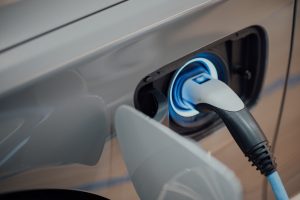July 23, 2024
From Zero to Hero:…
We helped a struggling client in the automation industry go...

Over the last few years, future fuels such as hydrogen and ammonia fuel have undergone serious technological development. Will this be the future of a greener logistics industry?
Sustainability. It’s that word again! We can’t escape it and it reaches into so many areas of our lives. One of the primary areas being targeted by green mandates concerns transport and logistics, with petrol and diesel-powered vehicles being prime targets for replacement. You’d be forgiven for thinking that the way forward is all electric. That’s what we’re mostly hearing about, at least in terms of domestic transport.
But when it comes to haulage and long-distance trucking, the picture is not so clear. Downtime needs to be kept to a minimum, and given issues such as battery range, charging times and battery weight, electric transport of goods is unlikely to become mainstream any time soon.

Looking beyond logistics for a minute, there’s a bit of a missing link when it comes to hydrogen powered vehicles. With the exceptions of Japan and South Korea, where support for hydrogen powered cars is high and well publicised, it’s just not something we hear about much over on this side of the globe. And yet the technology for hydrogen powered vehicles, including long-haul has been in place for some time now.
Compared with storing energy in batteries, hydrogen-fuelled trucks can refuel as quickly as traditional diesel trucks and have less of a weight disadvantage, with the tanks weighing considerably less than EV batteries. However, a major roadblock preventing uptake is the lack of hydrogen infrastructure, which is heavily tied up with certain industries.
It’s increasingly recognised that for hard-to-decarbonise industries where electric power isn’t suitable, hydrogen could be the way forward. Perhaps this will be the means by which hydrogen fuels become more readily available to the logistics sector in the future. Indeed, hydrogen is starting to take off in other industries irrespective of transport and when scaled up, the infrastructure required will be less costly to implement than e-charging, because it won’t require upgrades to the grid itself.

Again, not something we’re hearing much about given the limelight held by EVs, but ammonia powered vehicles are another alternative fuel to watch out for. In reality, ammonia power is actually a more developed form of hydrogen cell technology.
Hydrogen power is created by converting hydrogen into compressed gas or liquid form and running it through a fuel cell. In the case of ammonia, the hydrogen element is extracted from the ammonia first and then run through the fuel cell. The difference is that hydrogen sourced from ammonia contains three times the energy density of compressed or liquid hydrogen, making it much more efficient and easier to store and transport.
The world’s first ammonia-ready ship has now been developed and is currently being used in Greece. Whilst still running on conventional fuel, the ship has been fitted to run on ammonia in the future, representing a huge milestone in the maritime industry.
Further to this, ammonia technology developer Amogy has developed both a tractor and more recently, the world’s first semi-truck fuelled by ammonia. Bearing in mind that an estimated 25% of global road emissions are produced by heavy duty trucks and that ammonia power is almost emission free, the benefits further down the line could be enormous.
In a significant advantage over battery-powered alternatives, the semi-truck can be refuelled in just eight minutes, according to Amogy, at which point it has 900 kWh of total stored net electric energy, roughly equivalent to the Tesla Semi’s battery pack, which requires 30 minutes to charge to 70% of its range.

With full-scale testing yet to be completed and development of ammonia powered vehicles still very much in its infancy, it remains to be seen how quickly this exciting technology is going to be integrated into the mainstream of logistics.